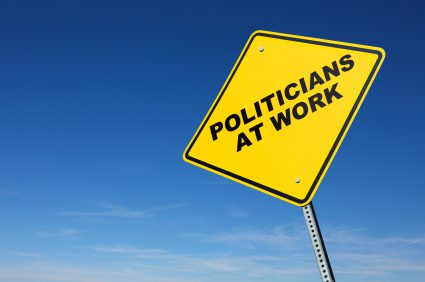 It’s a girl’s night out. You are meeting five of your good friends for dinner at a local restaurant. Have you ever noticed how you and your friends jockey for position at the table? Who sits next to whom? Who shares information with whom? Yes. It’s politics.
It’s a girl’s night out. You are meeting five of your good friends for dinner at a local restaurant. Have you ever noticed how you and your friends jockey for position at the table? Who sits next to whom? Who shares information with whom? Yes. It’s politics.
Observe your child at school or at play. Have you ever noticed how certain children play together and avoid others? How children will try to influence the teacher? How some children will always want to sit next to each other at lunch? It’s politics.
So why are we surprised that there are politics in the workplace? Whenever you have more than one person, there are politics. We just don’t always recognize it as such.
Our mindset dictates how we react towards this reality. When we label it as “politics” all of a sudden, we find it distasteful and shy away from it, even though it is a reality of our life (unless we live alone on a desert island somewhere).
For women, understanding that politics is a reality in the workplace is critical for advancement. To our detriment, we avoid, ignore, and do not comprehend how politics impacts our careers. The consequence of this lack of engagement is a not only a lack of advancement but also the increased probability of being blindsided at some point in our career. Without access to the informal networks, decision makers and influencers, we don’t have the necessary information to position ourselves appropriately.
Ask yourself these questions:
- What comes to mind when I think about politics in the workplace?
2. How do I feel about the people who are politically savvy and work the system?
3. What specifically bothers me about them?
4. Do I admire them at all? Why?
5. Do I work in an organization that promotes solely on performance?
I am currently writing a book about politics in the workplace. I would greatly appreciate your input. Please email me your responses to the above questions. The responses will remain anonymous.

In my opinion, politics in the workplace can either be a big negative or a positive. Especially if it is with a person who is over you, meaning your superior. Some adults can discuss different subjects of interest like adults. Others, cannot. Openly being able to discuss political subjects or any other subjects will help coworkers to learn something about others whom they work with. it doesn’t take long if one is listening to understand those that want everything for nothing and beleive in all the free programs that the government offers, from food stamps, now called EBT card to receiving financial help. They seem to know all those rules and laws, and can tell you how to work the system, right down to how many kids you should have to recieve more money. Where I work is in a retail environment, so there are many different people coming in every day. Many times customers may make a comment, which I am careful to give a answer that is neutral, especially if It is someone I do not know. There are several employees who have voiced their opinion about the government. The ones I dissagree with, I avoid.
Having recently walked away from a long and successful career in higher education due to political fatigue, I am thrilled to answer your questions. I am a happy, friendly person, who is very good at what I do. I have absolutely no political ability, therefore find the stress level unbearable.
1. Deceit and manipulation
2. Self serving and deceitful
3. Motivated by self promotion
4 I no longer respect the process
I am happily self employed, using my abilities to support folks in other ways.
Linda, Thank you for your comment. I am currently writing a book on women and office politics and appreciate your candor.